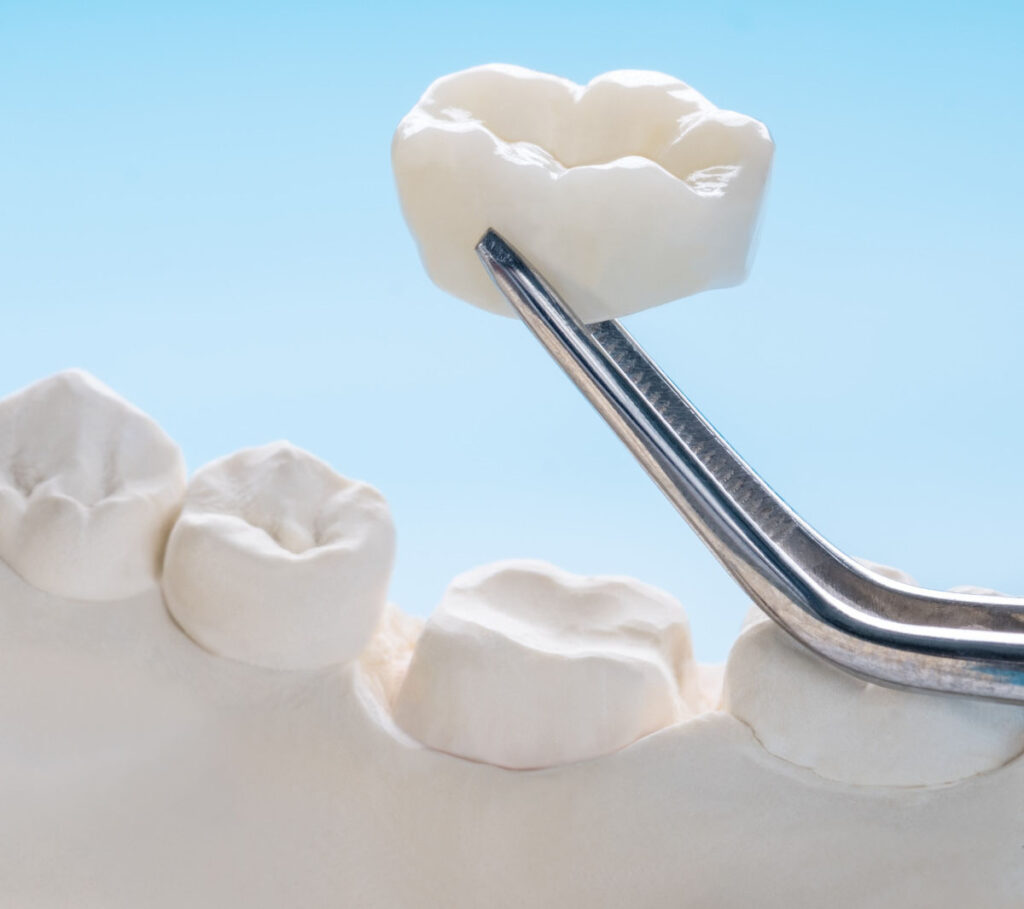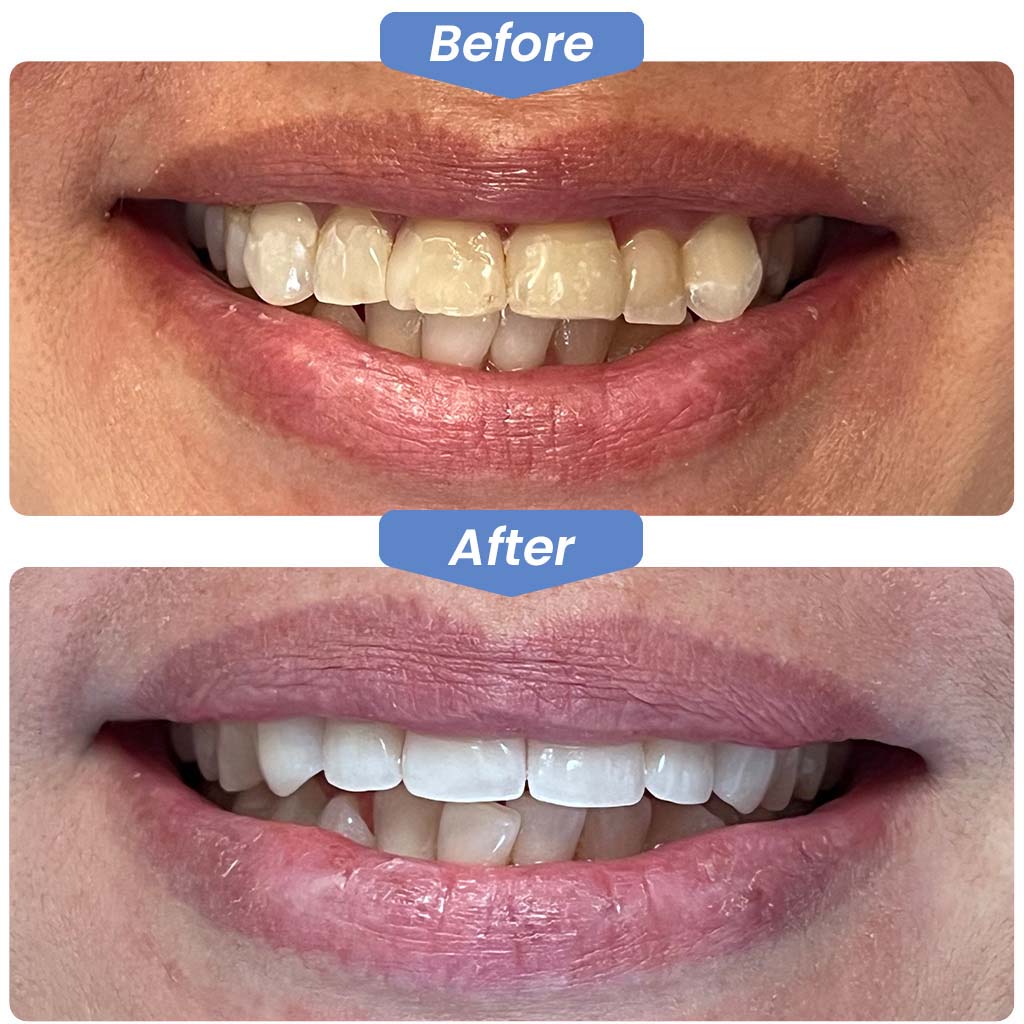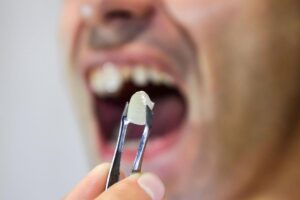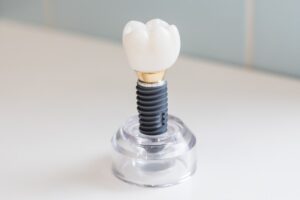Dental crowns in Kirkland are a trusted solution to improve function and protect your damaged tooth. So if you have a cracked tooth, a large filling, or need support after a root canal, come to Kirkland Dental Excellence and see if crowns are the right fit for you.
What is a Dental Crown?
Dental crowns in Kirkland are protective caps we place over a damaged or weakened tooth. They are custom-made to fit securely. Our dentists provide you with a personalized design that matches your natural tooth. We use them when a tooth has significant damage due to decay, breakage, or wear and tear.
Types of Dental Crowns
Type of Crown | Best For | Key Features |
Porcelain | Front teeth | Looks natural, resists stains |
Metal | Back teeth | Very strong and long-lasting |
Porcelain-Fused-to-Metal (PFM) | Back teeth | Strong with a more natural appearance |
Zirconia | Front and back teeth | Very durable, blends well with natural teeth |
Resin | Short-term or temporary use | Affordable, less durable than other options |

Benefits of a Dental Crown
- Preventing cracks and further damage.
- Making chewing and speaking easier.
- Blending with your other natural teeth.
- Lasting long with proper care.
- Improving your smile’s appearance.
- Holding bridges or cover implants.
Dental Crown Procedure
Our crown specialists, led by Dr. Oveys Hedayati, makes the process smooth and personalized. Here are the steps you’ll go through:
- We check your tooth and numb the area.
- We remove decay and reshape the tooth.
- We take molds for a custom fit.
- We place a temporary crown for protection.
- We adjust and test your permanent crown.
- We cement the crown and ensure a natural bite.

Dental Crown Cost in Kirkland
The cost depends on the material, type, location, and the number of visits required. Metal crowns are less expensive but may not look as natural. Porcelain and zirconia crowns cost more due to their durability and lifelike appearance. We help you find the best option for your budget and smile. Call us for a FREE consultation!
Dental Crowns Near Me in Kirkland, WA
Our skilled dentists at Kirkland Dental Excellence provide high-quality dental crowns with top-rated, personalized care. We can help you maintain a strong, healthy smile with the highest quality. All you need to do is make an online appointment for a FREE consultation.

FAQ
Are they painful?
No, the process is generally pain-free due to local anesthesia.
What does a dental crown look like?
It looks like a natural tooth and blends with your smile.
When are crowns needed?
For weak, cracked, broken, or severely decayed teeth.
How long does it take to fit a dental crown?
Usually, two visits over a few weeks.
How long do they last?
With good care, they last 10–15 years or more.
Related Blogs

Can a Dental Crown Be Removed?
Dental crown removal becomes necessary when the crown no longer protects the tooth or starts causing problems. Over time, a crown can loosen, break, or hide

Dental Implant vs Crown: What’s the Difference?
Many people find it difficult to choose between dental implant vs crown. Both options solve specific dental issues, but they work differently. Here, we are to

